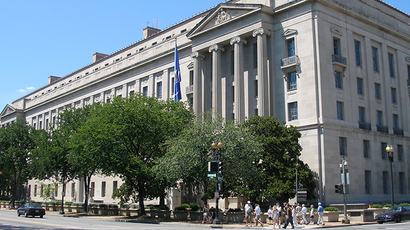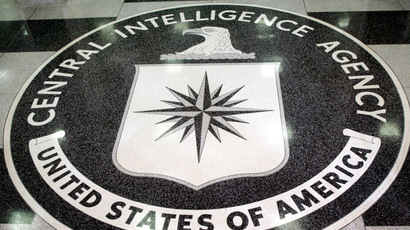White House torture report withholding critical facts, says top senator

One of the Senate’s top Democrats and a major author of the Intelligence Committee’s historic report on the CIA’s use of torture claims the White House is withholding important facts as it prepares to release the document to the public.
As a result, California Sen. Dianne Feinstein said she will not approve the release of the so-called “torture report” until the Obama administration works with her to smooth over their differences.
According to the Huffington Post, Feinstein claims the White House has redacted too much key information from the report’s summary, including the proof needed to justify the Senate’s reportedly critical findings.
"I have concluded the redactions eliminate or obscure key facts that support the report’s findings and conclusions," she said in a statement on Tuesday. "Until these redactions are addressed to the committee’s satisfaction, the report will not be made public."
She added that a letter has been sent to President Obama about the changes she wants to see regarding the redactions.
"The White House and the intelligence community have committed to working through these changes in good faith," Feinstein said. "This process will take some time, and the report will not be released until I am satisfied that all redactions are appropriate.”
The debate over the summary comes after the White House handed over a redacted version of the executive summary – some 500-plus pages of an overall report that clocked in at more than 6,000 pages total – on Friday, with the intention of having the document released to the public within a week.
That same day, President Obama acknowledged that the CIA used torture at a press conference.
“In the immediate aftermath of 9/11, we did some things that were wrong. We did a whole lot of things that were right, but we tortured some folks. We did things that were contrary to our values,” he said.
Although some senators immediately criticized the redactions – which were made chiefly by the CIA – National Intelligence Director James Clapper defended its actions. Clapper said more than 85 percent of the report was left as is, and that half of the redactions were made in the footnotes.
Before Feinstein’s statement indicated that meetings over the redactions will take place to resolve the dispute, White House Press Secretary Josh Earnest stood by the CIA on Monday.
“There was a good-faith effort that was made by the administration and by national security professionals to evaluate this information and to make redactions that are consistent with the need to protect national security, but also consistent with the president’s clearly stated desire to be as transparent as possible about this,” he said, as quoted by Yahoo News. He added that “common ground” was being sought with senators “so we can get this report released as quickly as possible.”
Other senators were quick to join Feinstein in her condemnation of the White House and CIA. Sen. Carl Levin (D-Mich.) called the redactions “totally unacceptable,” according to the National Journal, while Sen. Martin Heinrich (D-NM) suggested the report is now “impossible to understand.”
These redactions are just the latest issue over which the CIA and Senate have sparred over. Just last week, the CIA admitted it had spied on lawmakers drafting the torture report.
Meanwhile, the White House accidentally sent a document detailing some of the findings of the report to a journalist at the end of July. As RT reported then, this document allegedly showed that the CIA declined to inform then-Secretary of State Colin Powell of its interrogation and detention methods after the September 11 attacks, and that State Department ambassadors who did know were instructed not to notify their superiors.
To Feinstein, the best way for the US and for the public to confront the CIA’s behavior is to release the summary without blocking out key portions.
“The bottom line is that the United States must never again make the mistakes documented in this report," she said in her statement. "I believe the best way to accomplish that is to make public our thorough documentary history of the CIA’s program."














